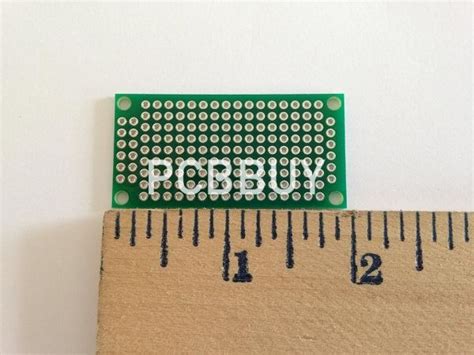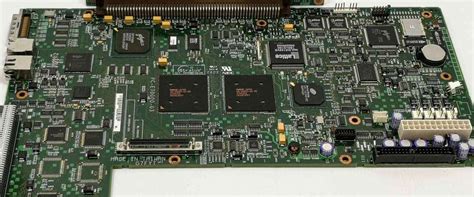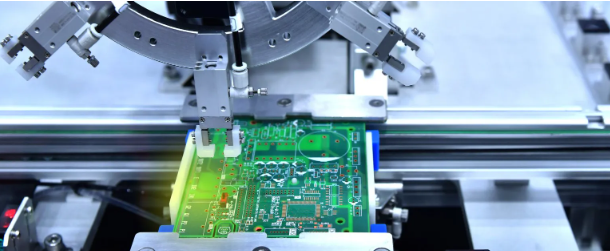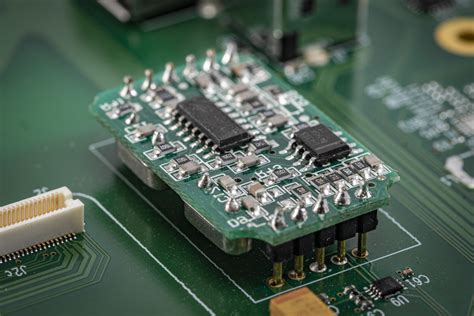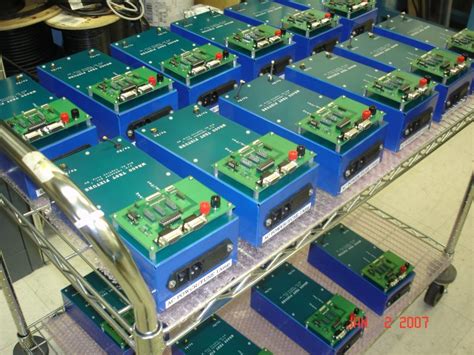Top Strategies for Choosing the Right Blank PCB Board Supplier
Key Takeaways
Choosing a reliable blank PCB board supplier is crucial for ensuring the success of your projects. When evaluating PCB manufacturing companies, you should take into account several key factors that can significantly impact your project’s outcome. One of the first aspects to consider is material quality. The materials used in PCB manufacturing can determine the overall performance and durability of your boards, so opting for suppliers that prioritize high-quality materials is essential. Additionally, understanding the pricing strategies employed by potential suppliers helps you strike a balance between affordability and quality. An attractive pricing structure might suggest low costs, but it could also indicate a compromise on material quality or service.
Moreover, assessing the manufacturing capabilities of different suppliers will provide insights into their production volume and advanced technology usage. This ensures that they can meet your demands consistently, especially during peak project phases. It’s equally important to check for necessary certifications and standards, as compliance with industry regulations reflects a supplier’s commitment to quality and reliability in PCB manufacturing.
Lastly, fostering strong communication and support from your blank PCB board supplier plays a pivotal role in bridging any gaps during the production process. Establishing long-term relationships with reliable suppliers can lead to better pricing on future orders, improved customer service, and a smoother workflow for your PCB manufacturing business decisions down the line. By focusing on these critical elements, you can select a supplier that meets your needs efficiently while optimizing your overall PCB manufacturing costs.
Understanding the Importance of Choosing a Reliable Blank PCB Board Supplier
Selecting a reliable blank PCB board supplier is crucial in the realm of PCB manufacturing. The quality of the boards directly impacts your project’s success, as PCB manufacturing companies vary widely in their capabilities, techniques, and material sources. When you partner with a dependable supplier, you ensure that your design specs will be met efficiently and accurately, which can save you both time and money in the long run. The PCB manufacturing cost can also be influenced by your choice of supplier; lower costs might seem appealing, but they often come at the expense of quality or service. Thus, it’s essential to strike a balance between affordability and product integrity. Furthermore, as your PCB manufacturing business scales or evolves, having a consistent supplier relationship can enhance flexibility and responsiveness to changing demands. Remember that investing time in finding a trustworthy partner today yields substantial benefits for future projects. For top-tier options, consider exploring suppliers who meet rigorous industry standards; this will significantly contribute to the overall reliability of your sourcing process. To assist you further, resources are available from manufacturers like Andwin PCB who provide insights into maintaining high quality in your PCB manufacturing ventures.
Key Factors to Consider When Evaluating Blank PCB Suppliers
When selecting a supplier for blank PCBs, there are several pivotal factors that you should weigh carefully. First and foremost, material quality plays an indispensable role in ensuring that the PCB manufacturing process yields reliable and efficient results. High-quality materials can significantly impact the durability and performance of your final product, affecting everything from electrical conductivity to thermal resistance. Thus, ensure that your potential suppliers adhere to stringent quality standards in their production processes.
Another critical aspect is pricing strategies, as finding a balance between cost and quality is vital for your project’s budget. While lower costs might be appealing, they may sometimes result in inferior products that could escalate overall PCB manufacturing costs due to necessary revisions or replacements down the line. As you navigate various PCB manufacturing companies, compare quotes while keeping an eye on the services they offer alongside their pricing models.
You should also assess the manufacturing capabilities of a supplier to determine whether they can meet your production demands effectively. Evaluate whether they have the necessary technology and resources to execute large orders or complex designs should your project requirements expand.
Don’t overlook certifications and compliance with industry standards; these elements provide assurance that the supplier maintains industry best practices in their operations, thus contributing positively to your business’s reputation in the long run.
“Remember, a good supplier relationship is built on trust; clear communication regarding expectations from both parties saves time and energy.”
In conclusion, you deserve a partner that not only meets your current needs but is capable of growing with you as your PCB manufacturing business evolves. This thoughtful approach will guide you toward establishing a productive collaboration with a reliable blank PCB board supplier.
Material Quality: Why It Matters in PCB Manufacturing
When selecting a blank PCB board supplier, one of the paramount considerations is material quality. The materials used in PCB manufacturing can significantly influence the performance, durability, and reliability of the final product. High-quality base materials contribute to superior electrical performance, which is essential for both simple and complex electronic applications. As you evaluate potential PCB manufacturing companies, you should inquire about the specific materials they use, such as FR-4 or other resilient substrates, as these will affect everything from thermal management to signal integrity.
To illustrate the impact of material quality on overall outcomes in your PCB manufacturing business, consider a comparison table that outlines different types of substrates and their characteristics:
| Material Type | Dielectric Constant | Thermal Conductivity | Typical Applications |
|---|---|---|---|
| FR-4 | 4.5 | 0.3 W/m·K | General-purpose electronics |
| Rogers 4350B | 3.48 | 0.67 W/m·K | RF and microwave applications |
| Polyimide | 3.2 | 0.12 W/m·K | Flex circuits, high-temperature use |
By understanding these attributes, you can make more informed decisions about what your project requires in terms of performance and end-use applications. The right materials not only enhance functionality but also help manage overall pcb manufacturing cost by reducing the need for rework or replacements due to failure or inefficiency over time.
Additionally, consider requesting specifications and certifications that validate the quality of materials used by potential suppliers. Engaging with suppliers who prioritize high-quality materials will contribute to stronger products that stand up to both client demands and regulatory requirements—essential for fostering a successful long-term relationship with your manufacturer. Ultimately, prioritizing material quality ensures you are paving the way for a robust and reliable electronic assembly, which speaks volumes to your customers and bolsters your reputation in the competitive landscape of PCB manufacturing.
Pricing Strategies: Finding Balance Between Cost and Quality
When selecting a blank PCB board supplier, understanding pricing strategies is crucial to finding that perfect balance between cost and quality. Begin by evaluating the PCB manufacturing cost presented by different suppliers. It’s vital to remember that the lowest price often does not guarantee the highest quality or best service. Investigate further into what you receive at various price points and consider how each supplier’s PCB manufacturing business practices impact overall value.
Quality materials and advanced manufacturing processes contribute significantly to the durability and performance of Printed Circuit Boards (PCBs). Therefore, prioritize suppliers who demonstrate a commitment to excellent material quality while offering competitive prices. Additionally, look for PCB manufacturing companies with transparent pricing structures that help you understand the costs behind production, including materials, labor, and any additional fees that may arise during the production process. This insight will allow you to make an informed decision, ensuring that you invest in a supplier who not only meets your budget but also upholds high standards in quality and reliability. By fostering these considerations into your selection process, you can successfully navigate the complex landscape of pricing strategies in PCB manufacturing without compromising on quality or support.
Assessing Manufacturing Capabilities: What to Look For
When evaluating potential blank PCB board suppliers, it’s crucial to thoroughly assess their manufacturing capabilities. You should consider the types of PCB manufacturing technologies they utilize, as this can greatly impact the quality and reliability of the final product. For instance, inquire about their equipment and whether they incorporate current advancements in PCB manufacturing processes that can lead to improved performance and efficiency. Additionally, look for suppliers who offer a range of customization options tailored to your specific requirements, as this flexibility is often indicative of a capable PCB manufacturing company.
Examining their production capacity is also essential; ensure that they can meet your volume needs without compromising quality. A reliable supplier should have proven experience in managing production timelines effectively while maintaining consistent standards in every batch. This aspect often directly influences the overall cost-effectiveness of your PCB manufacturing business, ultimately affecting your budget. Additionally, ask about quality control measures they have in place; reputable companies typically adhere to stringent quality standards and can provide certifications that affirm their compliance with industry benchmarks.
Evaluating these factors will help you connect with a supplier who not only understands the pcb manufacturing cost dynamics but also possesses the capabilities necessary for delivering high-quality materials suited to your projects.
Certifications and Standards: Ensuring Compliance in PCB Production
When selecting a blank PCB board supplier, it’s crucial to consider their adherence to certifications and standards in the PCB manufacturing industry. These credentials not only indicate a supplier’s commitment to quality but also ensure that they comply with regulations essential for producing reliable printed circuit boards. Look for suppliers who hold certifications such as ISO 9001, IPC-A-600, and IPC-6012, as these demonstrate a well-organized quality management system and an understanding of industry best practices. Proper certification is a clear sign that the supplier has undergone rigorous assessments of their processes, materials, and finished products. This is especially important when considering pcb manufacturing companies for your project, as any lapses in compliance can lead to products that do not meet specifications, potentially escalating the pcb manufacturing cost significantly due to rework or replacements. Thus, before engaging with a supplier, conduct thorough research on their certifications; this check can greatly influence your overall satisfaction with both the product quality and the effectiveness of your pcb manufacturing business.
Communication and Support: The Supplier’s Role in Your Project
Effective communication and robust support are crucial elements in the relationship between you and your blank PCB board supplier. When selecting a supplier, it’s essential to evaluate how well they communicate throughout the PCB manufacturing process. A supplier who commits to regular updates, prompt responses to inquiries, and clear explanations of technical details ensures that you stay informed, which can help you make timely decisions in your project. Moreover, outstanding support can significantly influence your overall experience; suppliers who are willing to provide assistance with design changes or troubleshooting during the manufacturing phase can save you both time and costs.
Consider how PCB manufacturing companies handle customer service—are they accessible when you need them? Their approach can directly impact the success of your project and the quality of the final product. Additionally, understanding their capacity to provide technical resources or consultation regarding PCB manufacturing cost can be a vital advantage for your business. A reliable supplier should not only deliver materials promptly but also act as an extension of your team, offering guidance that aligns with your project goals. Establishing a foundation of trust through effective communication and dedicated support will ultimately contribute to a successful partnership in your PCB manufacturing business.
Building Long-Term Relationships with Your PCB Supplier
Establishing strong, long-lasting relationships with your PCB supplier can significantly enhance the success of your PCB manufacturing projects. When you partner with a reliable supplier, you gain access to not only their resources but also their expertise in the field, which can help streamline your PCB manufacturing business operations. Consider how effective communication plays a vital role in this partnership; it ensures that both you and the supplier share a clear understanding of project expectations and timelines. Additionally, nurturing this relationship allows for more flexibility when it comes to negotiating PCB manufacturing cost, which can vary due to factors such as order size, material requirements, and production timelines.
You should also keep in mind that engaging with reputable PCB manufacturing companies fosters innovation. By maintaining a collaborative dynamic, your suppliers may provide insights or suggestions that lead to improvements in design or materials, ultimately resulting in better quality products. It’s important to approach this relationship with mutual respect and trust; doing so can not only lead to better prices but also more favorable terms on future orders. In an ever-evolving industry, being able to count on a blank PCB board supplier for timely updates on new technologies or materials can offer a significant competitive edge over others who may not have established such relationships. By investing time and effort into building rapport with your supplier, you set the foundation for ongoing success in the PCB manufacturing landscape.
Conclusion
Choosing the right blank PCB board supplier is critical to the success of your pcb manufacturing endeavors. It’s essential to keep in mind that material quality plays a pivotal role in determining the overall performance and reliability of your final product. Partnering with reputable pcb manufacturing companies ensures you’re getting quality materials that are compliant with industry standards. Furthermore, it’s wise to evaluate pcb manufacturing costs to strike a balance between affordability and quality; opting for the cheapest option may lead to compromised product integrity. As you assess potential suppliers, consider their manufacturing capabilities and past performance as indicators of their capacity to meet your specific needs. Establishing strong communication and support can also significantly benefit your pcb manufacturing business, allowing for faster resolution of issues and greater satisfaction throughout the production process. Ultimately, cultivating a long-term relationship with your chosen supplier will foster trust and reliability, leading to better outcomes for your ongoing projects.
FAQs
What should I consider when choosing a blank PCB board supplier?
When selecting a supplier, focus on their material quality, production capabilities, and certifications to ensure they meet industry standards.
How can I evaluate the pcb manufacturing companies effectively?
Review their portfolio, check client testimonials, and assess their ability to deliver on time while maintaining high standards in pcb manufacturing processes.
What is the typical pcb manufacturing cost, and how can I manage it?
Costs can vary widely based on materials and design complexity. Balance your budget by comparing multiple suppliers to find one that offers competitive rates without compromising quality.
Why is it important to assess the supplier’s communication and support?
Effective communication ensures you stay updated throughout your project and helps address any potential concerns quickly, which is vital for a successful pcb manufacturing business relationship.
What are industry certifications, and why do they matter?
Certifications indicate compliance with quality standards. Working with certified suppliers can give you confidence in their pcb manufacturing processes and overall reliability.
For more information regarding pcb manufacturing, please click here.

